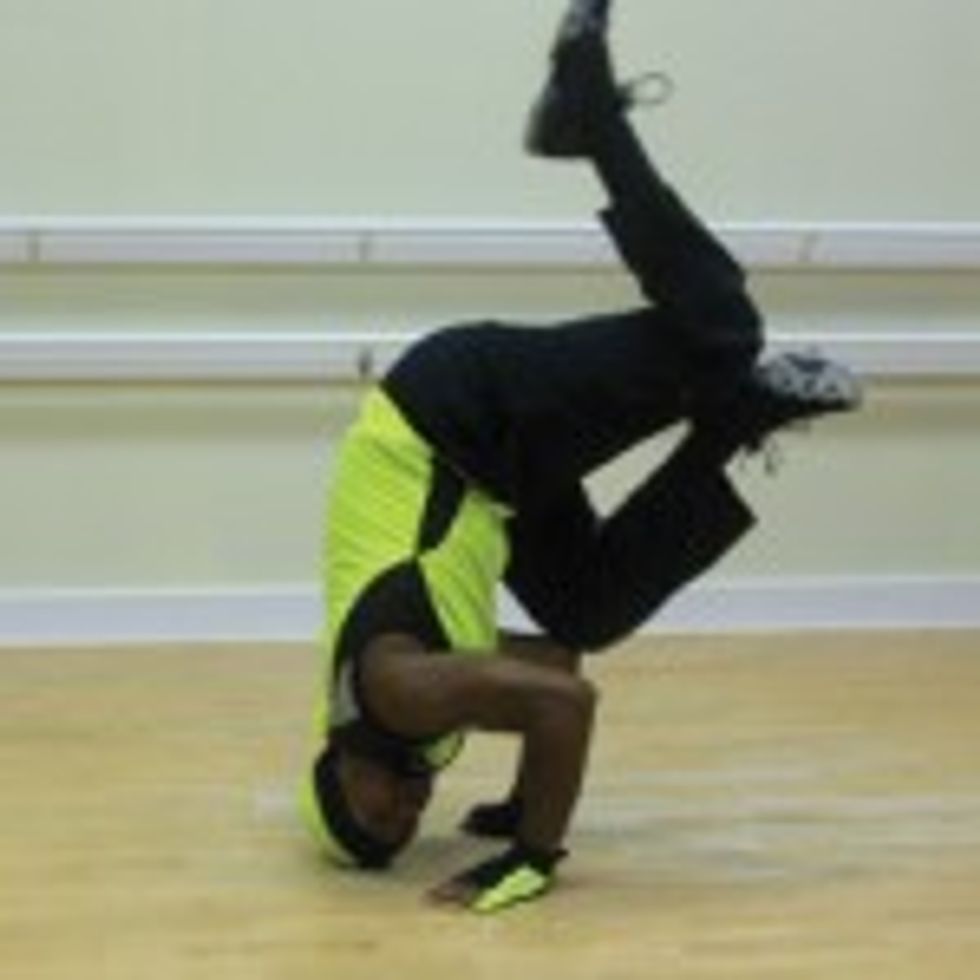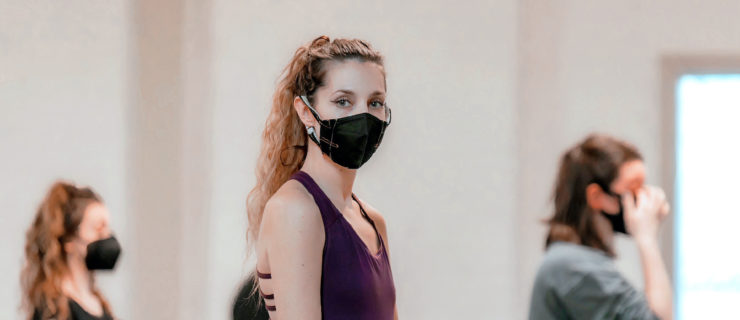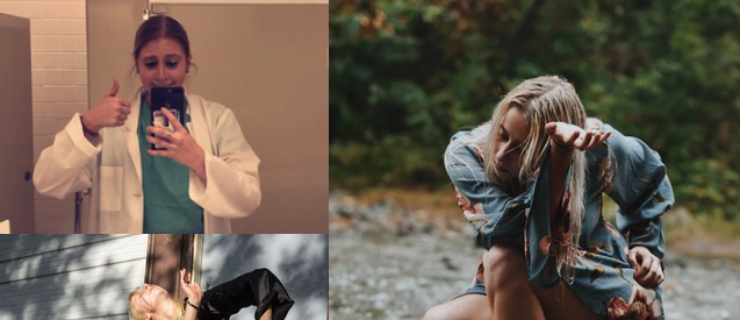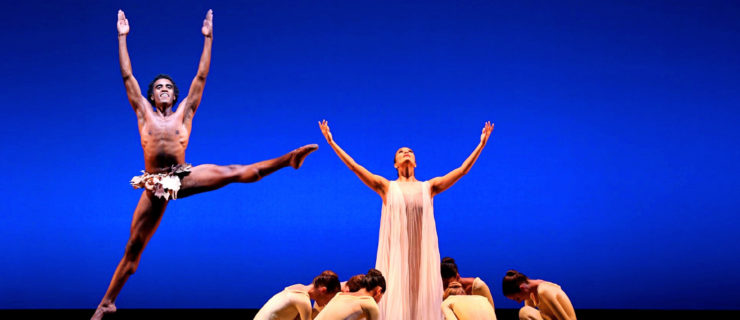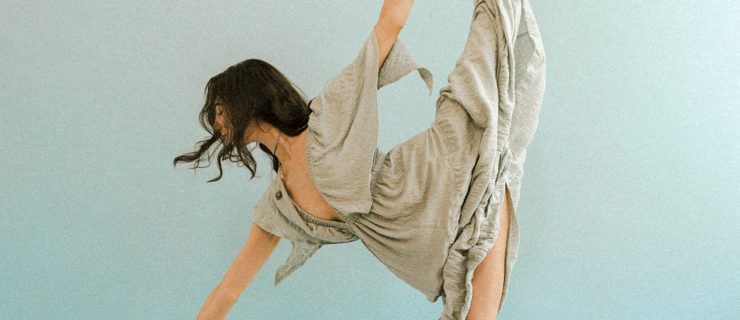Meet Blind Dancer Darren Hatch
Darren Hatch isn’t your average dancer. A college student who plans to pursue a PhD in speech therapy, Darren suffers from a degenerative eye condition—he’s legally blind! But that hasn’t stopped him from performing, first as a competitive cheerleader and now as a dancer. Darren trains at Absolute Dance Studio in Louisville, KY, and though this is only his second competition season, he’s already getting noticed. In 2008, he took home first place overall and the judges’ “B-Boy Award” from Talent on Parade; high gold at Encore! Talent Productions; first place at Creation Dance Championships; and a gold achievement award at Encore’s Nationals. Here, he shares his story with DS.
I got my first pair of glasses when I was a year old. When I started school, I had trouble

learning colors and reading small print. In second grade I started getting migraines and my vision just got worse: After a while I couldn’t read anymore, or get around much by myself. I kept coming home with a bloody nose from running into stuff. When my mom finally took me to the doctor, we found out I was losing my sight.
Today, I can see colors, but not very well. (Red is my favorite; I can see it the best.) Everything is extremely blurry, and I have almost no depth perception, which means I can’t tell how far away something is. If somebody’s dancing I’ll know that they’re moving, but I couldn’t tell you what they’re doing, if it’s an arm or a leg.
I first started dancing because of my grandma. She’d turn on En Vogue or Marvin Gaye and move my hips around. She taught me that dancing comes from your center. I was the only third grader in my class trying to get girls to dance with me! My grandma died when I was 9, and I think the stress of her death is part of what triggered my vision to get as bad as it is.
We moved soon after she died, and because I had a hard time in public school, I started attending the Indiana School for the Blind in Indianapolis. My mom wanted me to join the wrestling team, but I couldn’t because if I got hit in the head I could lose my sight entirely—so I joined the cheerleading team instead! (I was the smallest one at that point, so they could really throw me in the air.) My first year on the squad, our team competed against all the schools for the blind in the U.S., and we got third place.
My junior year, I transferred to the Kentucky School for the Blind and became the captain of their cheer team. As a senior, I competed in the Outstanding Cheerleader Competition. One person from each squad choreographs a routine, complete with cheers and flips (I do gymnastics also).
Usually it’s only girls, but I was chosen as Mr. Kentucky. I was the first boy to compete for Outstanding Cheerleader, and I won first place. For that routine, I dug back and used some songs that I’d listened to with my grandma, like “U Can’t Touch This.” The trophy had a girl on it, but I didn’t mind.
After graduating from high school, I started calling All Star cheer squads, trying to get on a team, but everybody turned me down. The minute I’d say,
“I’m legally blind,” the phone would get quiet. They’d be nice, but say, “This isn’t for you” or “We don’t have any room.” So my girlfriend and I started calling dance studios. We found Absolute Dance toward the end of my first year in college. The owner, Melissa George, said to come in for a few practices. That summer, she started teaching me the fundamentals of hip hop, jazz and tap. I auditioned in August 2007 and made it onto the school’s hip-hop team!
Everyone else on the team is fully-sighted and has been dancing for years, but they’ve been very open. In the studio, Melissa uses imagery to describe the moves to me. She might say, “Be a snake,” or “When I say ‘flex,’ this is what I want you to do with your hands and feet.” Based on her descriptions, sometimes I’ll do something goofy—everyone else will do it right because they can see her, and I’m doing something entirely different. But she comes back to straighten me out. Thanks to cheerleading, I have good muscle memory. Once I know it, I know it.
One of the big questions for me as far as performing was how I’d do formations without running someone over. In cheerleading, we had a mat with circles on it big enough for us to see, and since we were so vocal, we could hear where the others were. But in dance, obviously there’s no talking. Melissa spaces us far enough apart that I’ve got my own zone to work in, and she uses colors to help me. For instance, the costumes this year were orange, which is bright enough for me to see. If two girls are up front, and I know I’m supposed to be in the back middle, I can distinguish the two orange figures and know I’m right between them. My teammates guide me onstage, set my cane to the side and guide me off at the end. I can see the lights, but I can’t see the crowd. At my first recital, I almost fell off the stage—I didn’t know I was at the edge until half of my foot went over. The audience gasped, but I managed to find my center, get back onstage and hit my next breakdance move. I was really proud of that performance.
I’m starting to branch out from hip hop. I want to expand my technique and study tap and jazz. (I’m definitely excited about tap, because it’s based on sound!) As a dancer, I love to wow the crowd. I like to be the one doing something spectacular. I’m an entertainer; my dancing is very theatrical. I want to show people that although I’m blind, that isn’t all I’m going to allow myself to be. I don’t want the judges to say, “Oh, the poor blind boy.” I want them to say, “He’s a dancer, too.”
I want to tell everyone that no matter what obstacles life throws at you, even if it seems like you’re not going to finish or be the winner, you can’t let the idea of that beat you down. Stand up, even in the midst of chaos, and take control of your own life. Only you can control your performance. Life is a performance, and if you’re discouraged while you’re performing, everyone’s going to see it and they’re going to be discouraged, too. Be an inspiration.
